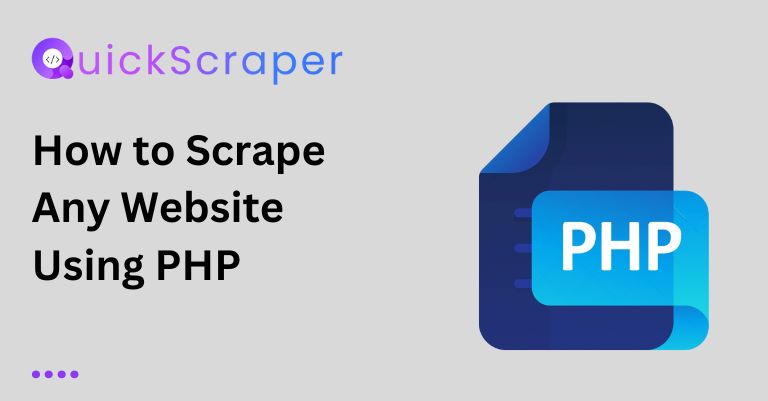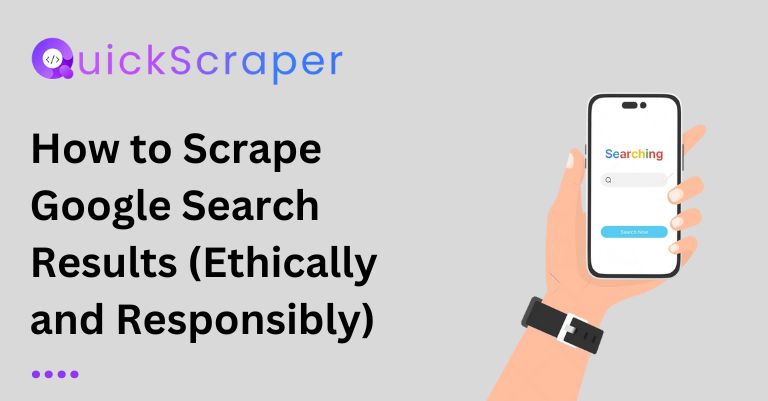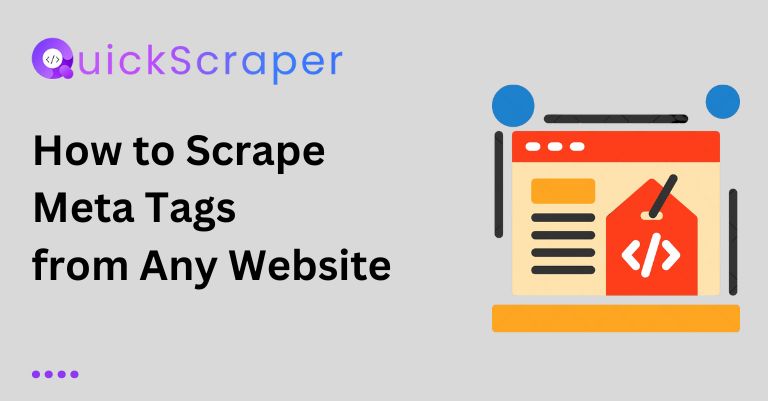
How to Scrape Any Website Using PHP
How to Scrape Any Website Using PHP Do you hate manually copying and pasting data from websites? With web scraping, you can automate the process

Gathering data through web scraping can provide valuable insights, but when it comes to a search engine like Google, extra care must be taken. Google search results are intellectual property and protected by terms of service. In this post, we’ll explore how to scrape Google results in an ethical and responsible way.
Rather than directly scraping Google, we’ll focus on using the Custom Search API. This provides a supported way to retrieve search results within strict usage limits. Scraping a site’s data can be done legally, beneficially, and in accordance with its intended use with a few precautions. Let’s dive in to scrape Google search results the right way!
Before diving into specific code, let’s establish ethical and responsible scraping practices:
Python
import requests
from bs4 import BeautifulSoup
import csv # Not used in this code, but included for completeness
import json
access_token = 'YOUR_ACCESS_TOKEN' # Replace with your own access token
url = f"<https://api.quickscraper.co/parse?access_token={access_token}&url=https://www.google.com/search?q=laptop>"
print(url)
response = requests.get(url)
html_content = response.content
soup = BeautifulSoup(html_content, 'html.parser')
requests), parsing HTML (BeautifulSoup), and potentially saving data in CSV (csv) or JSON (json) format.'YOUR_ACCESS_TOKEN' with your own token from a reputable web scraping API provider that adheres to ethical scraping practices (consider paid options for reliable scraping with proper rate limiting and respect for robots.txt).Python
items = soup.find_all('div', class_=['g', 'Ww4FFb', 'vt6azd','asEBEc', 'tF2Cxc'])
google_search_items = []
for item in items:
title = item.find('h3', class_=['LC20lb','MBeuO', 'DKV0Md']).text.strip() if item.find('h3', class_=['LC20lb','MBeuO', 'DKV0Md']) else None
description = item.find('div', class_=['VwiC3b', 'yXK7lf', 'lVm3ye', 'r025kc', 'hJNv6b', 'Hdw6tb']).text.strip() if item.find('h3', class_=['VwiC3b', 'yXK7lf', 'lVm3ye', 'r025kc', 'hJNv6b', 'Hdw6tb']) else None
url_element = item.find('a', {'class': '.UWckNb'})
url = url_element.get('href') if url_element else None
foundItem = {
"title": title,
"description": description,
"url": url,
}
google_search_items.append(foundItem)
'g' (representing search results) and then iterates through them.Python
# Not used in the provided code, but included for completeness
with open("google_search_items.json", "w") as file:
json.dump(google_search_items, file, indent=4)
json library.While web scraping can be a valuable tool, it’s essential to prioritize ethical and responsible practices. Always check website guidelines, use approved methods, and avoid overloading servers. Consider paid or officially sanctioned scraping options to ensure you’re adhering to best practices. With a responsible approach, scraping can be a valuable tool without compromising ethical considerations.

How to Scrape Any Website Using PHP Do you hate manually copying and pasting data from websites? With web scraping, you can automate the process

How to Scrape Meta Tags from Any Website Meta tags are snippets of text that describe a website’s content, and search engines use them to

How to Scrape Images from Any Website Scraping images from websites can be a useful technique for various purposes, such as creating image datasets, backing

How to Scrape a Website Without Getting Blocked: A Developer’s Guide Web scraping, as a powerful tool, is beneficial for developers, giving them the power

How To Scrape Yelp Data using Python Web scraping is the process of extracting data from websites automatically. In this blog post, we’ll learn

How to Scrape Stock Prices Every Day using Python In this blog post, we will learn how to scrape stock prices from a financial website
By clicking “Accept”, you agree Quickscraper can store cookies on your device and disclose information in accordance with our Cookie Policy. For more information, Contact us.